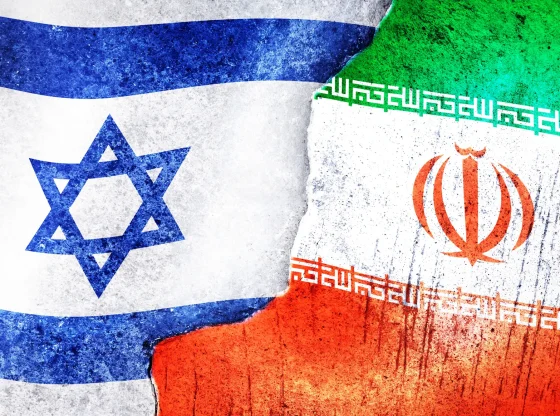It looks like there might be a glimmer of hope in the escalating conflict between Iran and Israel! Iran has reportedly been using Arab countries as go-betweens, sending signals to both Israel and the U.S. that it’s ready to calm things down and even get back to nuclear deal discussions.
According to the Wall Street Journal, citing sources in the Middle East and Europe, Tehran has told Arab officials it’s willing to resume talks as long as the U.S. keeps out of the current hostilities. This news comes after nearly four days of missile exchanges between Iran and Israel, a period that really ratcheted up tensions and sparked fears of a full-blown war in the region. The WSJ also reported that Iran has communicated to Israel that it would be best for both sides to keep the violence from spiraling out of control.
Sadly, the human cost of these strikes has been significant. A Washington-based monitoring group, Human Rights Activists, reports at least 406 people killed in Iran and over 650 injured. Iran’s government hasn’t yet released its official casualty figures. The recent wave of attacks kicked off on Friday with surprise Israeli strikes on Iranian nuclear and military sites, which, unfortunately, resulted in the deaths of senior figures in Iran’s armed forces and nuclear program.
Interestingly, there’s been talk that U.S. President Donald Trump recently put the brakes on an Israeli plan to target Iran’s Supreme Leader, Ayatollah Ali Khamenei. That’s a move that certainly could have had some serious repercussions. Israel has been framing its offensive as a preventative measure, aiming to curb Iran’s nuclear ambitions, arguing that Tehran is getting dangerously close to developing nuclear weapons. Of course, Iran has been seen as a major regional threat by Israel for decades, and these two nations have been adversaries for a long, long time.
Trump, for his part, has been trying to distance the U.S. from the conflict, stating that Washington wasn’t involved in the attack. He’s suggested that Iran could avoid further destruction by agreeing to a new nuclear deal, and on Sunday, he even publicly called for Iran and Israel to make a deal. He posted on Truth Social, “Iran and Israel should make a deal, and will make a deal, just like I got India and Pakistan to make, in that case by using TRADE with the United States to bring reason, cohesion, and sanity into the talks with two excellent leaders who were able to quickly make a decision and STOP!”
However, it’s worth noting that the Arab intermediaries cited by the WSJ haven’t seen any indication that Iran is actually prepared to offer new concessions in nuclear talks. And on the other side, Israeli Prime Minister Benjamin Netanyahu has previously stated that the attacks won’t stop until Iran’s nuclear programs are completely destroyed, and he hasn’t shown any signs of wanting to halt the conflict just yet.
This whole situation has definitely had ripple effects. We’ve seen a spike in oil prices, and other Arab nations like Oman, Saudi Arabia, and Qatar have been quite spooked, all urging both countries to get back to the negotiating table. On a more positive note for some, Wall Street seems to have reacted well to these de-escalation signals, with markets rising sharply.
It’s a complex and fast-moving situation, but these signals from Iran do offer a potential path towards de-escalation. Do you think a new nuclear deal is a realistic outcome here?

